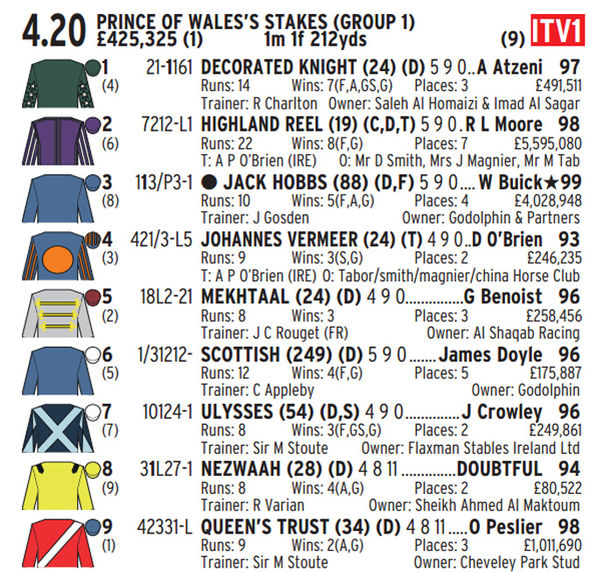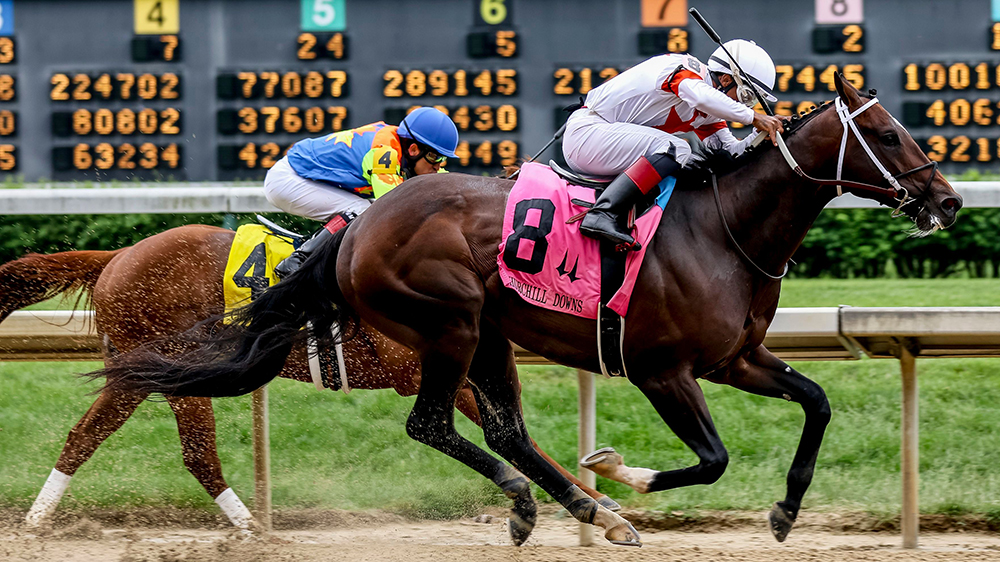How to Analyse a Horse Race? Many elements are used to analyse a race, with various analysts assigning a different weight to the handicapping factors. On a horse-by-horse basis, all analysts use the same fundamental information. However, when a Race summary is reached, different horses are predicted to win by various analysts.
The Most Significant Factors taken into account in Horse Racing Analysis
Class of the Horse and the Race
Class in handicapping refers to a horse’s aptitude compared to its competitors. In this regard, the class may be defined as a horse’s mix of speed, stamina, and determination attributes that enable it to win or compete at a certain level of competition. The larger the race-grade, the more the horse’s speed, endurance, and resolve are required to win. One of the most critical aspects of successful form analysis is his ability to comprehend and analyse class. Other positive criteria like form, fitness, distance, Weight, barrier, and rider are meaningless if a horse lacks the required class (ability) to win the race.
Understanding and adequately judging class is an essential component of excellent form analysis. Other positive elements like form, fitness, distance, Weight, barrier, and rider may be unimportant if a horse lacks the essential class (ability) to win the race.
Latest Form
Assessing the qualities of a horse’s recent form requires more than a simple examination of its most recent finishing places. The adequacy of the horse’s racing circumstances and any other elements that may have influenced its performance must be considered. You may make necessary inferences about how a horse will perform today by putting together your study of its recent form and the appropriateness of today’s circumstances. A horse that was severely suited by the going in its last start but is now excellently suited might be anticipated to perform better.

This method will help the Analyst identify the races with actual winning prospects. Several situations might be presented. Out-of-form horses seldom win. Therefore a seasoned punter will be able to spot these characteristics. Horses who are well suited to the going, are in excellent shape, and are expected to progress to their best form today should be prioritised. According to studies, these horses win about 95 per cent of all races.
Fitness of the Horse
A horse, like an athlete, must be in top condition to perform to its greatest capacity. A trainer prepares their horse for racing by combining training, trials, and real racing, with the qualities of the particular horse influencing the preparation. After numerous races in top condition, a horse will begin to fatigue physically and emotionally from racing and may need a respite or spell.
Some horses can tolerate lengthy preparations with several starts, but others can only peak for a few races before tapering down. It is determined by confirmation, constitution, and general health. Fitness should be regarded as an essential factor in evaluating each horse.

Read the steward’s excerpts for forthcoming meetings to identify horses with fitness issues. Changes to a horse’s feet or legs (for example, bar plates, synthetic filler, bandages) often indicate that something isn’t quite right with the horse. Also, reports from prior races, such as the horse bleeding, being galloped on, pulling up with respiratory trouble, or an injury, provide a reason to be concerned about its fitness for today.
Jockey Riding the Horse
When analysing the jockeys in a race, consider the following:
Is today’s jockey the same as the prior one?
Will the trainer’s change of jockeys be a good or bad change? Consider the jockey who is now riding the horse against the jockey who is being replaced.

What Was The Horse’s Previous Record?
Has this jockey already rode the horse, and how did the animal perform on those occasions?
Combination of Jockey and Trainer
A trainer changing the jockey may display how the trainer feels the horse will run. Several jockey/trainer pairings have a high strike rate and a profitable track record. Most online form research websites will provide historical percentages of trainer/jockey pairings for the racecourse.
Racetrack Conditions (Wet or Dry)
Track Condition, commonly known as the Going of the Racecourse, refers to the quality of the ground on which the races are run. When wet tracks are involved, assessing form for today’s race or previous races may be tricky and unpredictable. Some horses perform well on dry ground, others on wet ground, while others are adaptable and can perform efficiently under all conditions.
Rational analysis may still uncover some profitable betting options. Statistical analysis of a wide variety of racing data reveals consistent outcomes regardless of track condition, and the betting market is no more or less accurate on wet tracks than on dry.

Use caution when predicting performance on a dry track using wet track form. Some horses may improve dramatically while running on a wet track but will not necessarily take that form to their next dry race.
The Weight carried by a Horse
Weight has been and will continue to be the cornerstone of thoroughbred racing. As a result, it is one of the aspects we must consider while evaluating the possibilities of a future race. The well-established Weight handicapping theory is that 1.5 kg equals one length. For example, losing 1.5 kg of Weight improves a horse’s performance by one length, whereas adding 1.5 kg slows it down by one length.
Analysing a Horse Race – Various Factors do not make it Easy
Taking so many factors into consideration for a single horse race makes a horse racing analyst’s life quite difficult. There will be times when the Analyst realises a factor being used that is not adding as much value as the first thought.
However, adapting the system being used is key to more accurate predictions in the future. The Analyst will have to be open-minded to making the changes and allowing those changes to infuse into the system to see if a change has been correct.
An Analysts’ aim should always be to select more winners, and patience, open-mindedness to change, and a consistent handicapping system will be the key to more winners.

